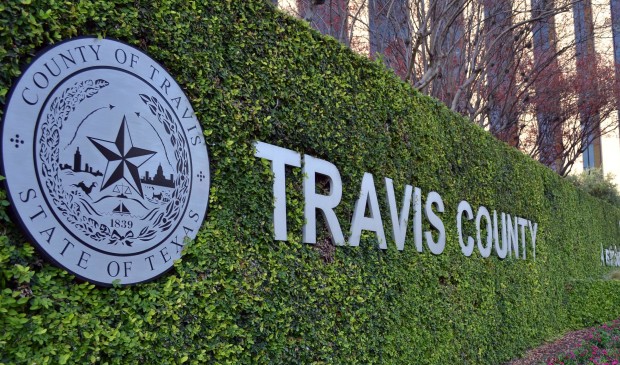Travis County Commissioners Court approves $1.2 billion budget
Wednesday, September 25, 2019 by
Jack Craver The Travis County Commissioners Court voted unanimously Tuesday to approve a $1.2 billion budget for Fiscal Year 2019-20 and a corresponding tax increase.
The average Travis County homeowner will pay $126 more in county taxes this year as a result of the budget. The hike amounts to “less than one takeout pizza a month,” according to a budget summary prepared by a county spokesman.
Property taxes will generate $84.4 million more than the previous year, or an increase of 12.5 percent. However, $18.6 million of that increase is due to new development, rather than an increase in values of existing property.
The increase in tax revenue from existing properties is 8 percent – the current rollback rate. If a local government exceeds the rollback rate, state law allows residents to challenge the tax increase via referendum.
Some notable expenditures in the budget include:
- $4.3 million to fund a new public defender’s office
- $7.8 million in road repairs
- $11.6 million for new vehicles and heavy equipment
- $10.3 million in renovations to the county jail that are projected to result in $2 million a year in energy savings
- $4.9 million in IT improvements
- $1 million for flood mitigation
The budget also raises the minimum wage for county workers to $15 an hour. The county is spending $1.9 million to fund an increase for sheriff’s deputies and correctional officers that will result in an average pay raise of 2.6 percent. Most other county employees will get a raise of at least 3 percent.
Due to a new state law, starting next year the rollback rate for most local governments, including the city of Austin and Travis County, will drop to 3.5 percent. And whereas current law allows voters to challenge a tax increase over the rollback rate, the new law will require voter approval for any increase over the new threshold.
All five commissioners supported going up to 8 percent for the first time in many years in anticipation of the coming revenue restrictions. One after another, each commissioner said they were only approving such a large tax increase reluctantly and placed the blame squarely on the state Legislature.
“I think nobody’s comfortable with this increase,” said Commissioner Brigid Shea. “This is a prudent action on our part in order to have some cushion going forward.”
“We are responding to terrible public policy and we’re having to do uncomfortable things, but the people we serve require many of the things that we’re having to support,” Commissioner Jeff Travillion said.
County Judge Sarah Eckhardt reminded those listening that in Texas, a county government is an “arm of the state,” charged with delivering a number of services mandated by the state Legislature, notably the criminal justice system.
Moreover, said Eckhardt, the commissioners’ decision to invest in services reflects the will of the voters who elected them.
“We find it necessary to go to the 8 percent in order to continue to deliver on these plans that we were asked to make by the constituents,” she said, adding that the court may have to pare back its plans in coming years due to the new revenue restrictions.
Commissioner Gerald Daugherty, the court’s lone Republican, similarly expressed discomfort increasing taxes so much, but argued it was the responsible action to take to prepare for years of low revenue.
“This is probably not the most acceptable budget to the majority of the public,” he said. “We all know what’s about to happen to us with the 3.5 (percent limit).”
During the legislative session this spring, Daugherty tried in vain to convince fellow Republicans at the Legislature to leave local governments’ taxing authority alone.
Commissioner Margaret Gómez said she did not relish increasing taxes when people are struggling to afford living in Travis County. However, she said, this was a decision she had to make in order to support services she believes the community needs.
So, she added, “I’ll take the heat along with everybody else.”
The Austin Monitor’s work is made possible by donations from the community. Though our reporting covers donors from time to time, we are careful to keep business and editorial efforts separate while maintaining transparency. A complete list of donors is available here, and our code of ethics is explained here.
You're a community leader
And we’re honored you look to us for serious, in-depth news. You know a strong community needs local and dedicated watchdog reporting. We’re here for you and that won’t change. Now will you take the powerful next step and support our nonprofit news organization?









